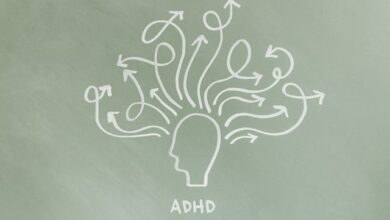
Mental and Physical Challenges After Auto Accidents
According to recent estimates from the US Department of Transportation, there are, on average, six million auto accidents in the United States each year. Nearly 34,000 of those accidents involve fatalities.
But if you are one of those six million, you know that the accident does not have to claim a life or cause serious physical injury to leave a mark. Even the most seemingly “minor” crash can have physical and emotional repercussions that reverberate for years, if not a lifetime.
It doesn’t have to be that way, however. If you have been involved in an automobile accident, it is possible to regain your physical health and peace of mind. This article explores the physical and psychological impacts of a car crash and what you can do to mitigate them.
The Physical and Mental Impact of Trauma
One of the most important steps in recovering from auto accidents is recognizing the sometimes subtle signs of lingering trauma. For example, you may be experiencing anxiety, depression, insomnia, difficulty concentrating, changes in appetite, or loss of interest in the things you once enjoyed. Similarly, you may find that your performance at work is declining or your relationships are suffering.
All of these can be symptoms of emotional dysregulation that often follow the experience of trauma. In the aftermath of the severe distress caused by auto accidents, the brain may lose its capacity to regulate its stress response, leading to hyperarousal that ultimately evolves into post-traumatic stress disorder (PTSD) or related mental illnesses.
The challenge, however, is recognizing the trauma’s source. If the accident you experienced left no lingering physical injuries and everyone walked away safely, you may easily dismiss the event as the true cause of your PTSD. However, if you find yourself having intrusive thoughts, memories, or flashbacks of the event, or if you start to avoid pleasurable activities, especially ones that involve road travel, then chances are it is the accident that’s taking its toll.
Bear in mind, as well, that the brain never truly forgets. The crash might have occurred years ago. You might not have been physically involved at all. You could have merely been a bystander. It doesn’t matter. The brain doesn’t differentiate between the types of intense stressors as they occur. Yet, if you have experienced brain trauma, seek support and treatment from a Neuro Injury Care specialist. They will get you the right help to treat your injury and ensure you can reach a healthy recovery.
All the brain knows is it is in distress and experiencing extreme shock and fear. Even if those emotions last mere seconds, they are deeply embedded in the memory, archived in the most primitive regions of the brain, the seat of both the survival instinct and the primal emotions relating to the fight or flight response. It’s a protective mechanism, to be sure — the brain’s effort to document (and avoid) danger so that it can never pose a threat again.
But that same nexus of memory and emotion deep inside the brain that evolved to help keep us safe also created the feedback loop of hyperarousal, fear, and avoidance that can become so crippling for trauma survivors.
Such a state of hyperarousal leads, on the most fundamental level, to a condition of chronic stress that may take not only a profound emotional toll but also a physical one. Not only does prolonged stress interfere with appetite, sleep, and overall cognitive functioning, but it also can impact other physiological functions. Your immune system may suffer, putting you at risk of opportunistic infections. Likewise, your heart rate may rise, increasing your chance of developing high blood pressure and potentially life-threatening blood clots.
The Road to Recovery
If you are in the grasp of PTSD, escape can feel impossible. And when your trigger is associated with road travel, the impact on your day-to-day mental health is devastating because you can never truly escape your trigger — unless you lock yourself inside your home and avoid vehicular travel entirely. However, new approaches are emerging daily to support trauma survivors’ mental and physical healing, particularly those with PTSD.
For example, trauma survivors are increasingly advocating for a holistic approach to recovery, combining trauma-informed mental healthcare with a lifestyle supporting physical, psychological, and emotional wellness. One such approach, the Recovery Patchwork Quilt, posits that therapy alone is insufficient to support recovery but must be used in conjunction with daily practices, from yoga and meditation to the creative arts, that dampen the brain’s stress responses and the body’s physiological reactions to it.
As you cultivate a wellness lifestyle, focusing on your financial wellness is also important. Whether from auto accidents or the physical and emotional aftermath, you may be confronted with significant medical debt due to the crash.
Recovering your physical and mental health will likely mean addressing these expenses head-on, as financial distress is particularly detrimental to mental health. Medical debt forgiveness and low-interest repayment plans can help you regain your financial footing and mitigate an accident-related cause of anxiety. It can also help to find out the average settlement payout for a motorcycle accident because you can make a personal injury claim.
In essence, by combining professional psychiatric care with a daily routine that promotes calm, relaxation, and mindfulness, trauma survivors can more readily cope with the memories that keep them in a state of anxiety. Such a holistic approach that combines professional care and self-care frees you from the cycle of fear, panic, and avoidance.
The Takeaway
Auto accidents occur by the tens of thousands daily on America’s roadways. But when it happens to you, it’s no longer commonplace. No matter how minor, a car crash’s mental and physical effects can linger for years. With proper care, though, it is possible to survive and thrive in the aftermath of an accident.



